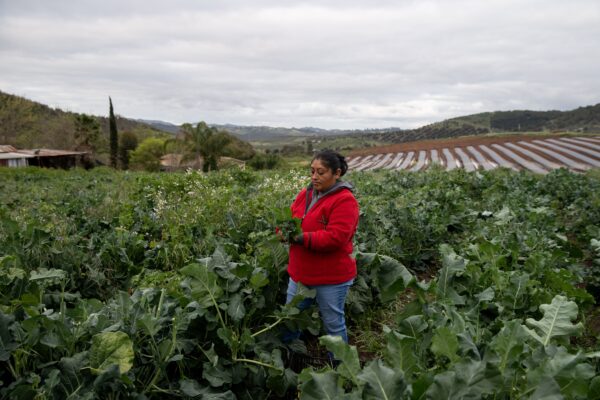Canadas Agriculture Sector Warns of Food Shortages and Higher Prices
Canadas agriculture sector is warning of higher prices and potential food shortages if it it isnt de..
Canadas agriculture sector is warning of higher prices and potential food shortages if it it isnt designated an essential service and allowed to do business as usual during the COVID-19 crisis.
Already people worried about food staples have emptied some grocery store shelves, although governments have all said supplies are secure.
“Were in unknown territory. We have concerns about potential problems,” said Todd Hames, president of the Alberta Wheat Commission. “Thats why we need to have governments recognize that farming is an essential service supplying food for the world.”

Hames, who has a grain farm near Marwayne in east-central Alberta, said railways, the Port of Vancouver, and companies that supply fuel and farm implements also need to remain open with spring seeding only weeks away.
Its especially important since there have been delays in getting grain to market due to strikes and rail blockades, he said.
“Just when prices were starting to see our seasonal rallies in the spring, coronavirus hit. Its just all gone to hell in a hand-basket,” Hames said. “Who knows what were in for this year?”
Canadas cattle industry saw a sharp drop in prices when the CCP (Chinese Communist Party) virus pandemic was declared, although they have stabilized in recent days.
The Epoch Times refers to the novel coronavirus, which causes the disease COVID-19, as the CCP virus because the Chinese Communist Partys coverup and mismanagement allowed the virus to spread throughout China and create a global pandemic.
In 2018, Canada exported $3.7 billion in beef and live animals to 56 countries, but three-quarters was shipped to the United States. The Canadian Cattlemens Association wants to make sure that market isnt affected and is relieved that borders are still open to beef as an essential good.
But first and foremost, said executive vice-president Dennis Laycraft, there must be recognition of efforts to keep an adequate supply of food available to Canadians.
Laycraft said the industry has been working with Agriculture Canada and the Canadian Food Inspection Agency to ensure meat−packing plants remain open.
“Weve had good assurance that were going to be able to keep the plants up and operating at capacity,” he said.
The federal government is exempting temporary foreign workers, including migrant farm workers, from some COVID-19 travel restrictions.
About 60,000—mostly from Mexico, Jamaica and Guatemala—come to Canada annually, including 20,000 to Ontario alone.
Bill George, chair of the Ontario Fruit and Vegetable Growers Association, said workable safety rules need to be developed for those workers.
“We have to have some protocols that make sense. We view it as an essential service, but sometimes it would be very hard to maintain the six feet minimum separation that they want,” GeorgeRead More – Source

